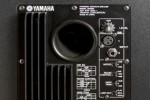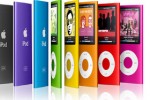I read quite a few “experts” here with the absolute, unequivocal statement that nobody can hear about 20KHz. First, the human ear is an analog system. There is no 20KHz “cutoff” beyond which nobody can hear. Everyone has a curve of decreasing perception and some point where the curve falls below the level of perception. The 20Khz frequency cited was chosen for two reasons:
- the vast majority of people cannot hear anything above that frequency (note that I did not say all) and
- it’s a nice round number. If they really searched for the 99th or 99.9th percentile among thousands of listeners, it might be 19,585 or 20,116 for that matter. Mostly, they tended to test with fixed frequencies. But, it is a statistical cutoff, not a brick wall. Some people clearly hear to higher frequencies, many as high as 22KHz.
That said, there is also growing evidence that many people “perceive” frequencies above 20KHz. There are many theories that support the idea that this is an alternative hearing mechanism, and it is yet to be proven. But, some scientific evidence has shown perception of content around 26KHz by people with apparently much lower cutoffs. This work remains controversial.






I agree that audio above 20k is sensed. I took the hearing test and I thought I could hear it but wasn’t sure, so I did it three times. Each time, my ears felt relief when the indicator timed out. Also, I found some of the frequencies irritating and/or painful, and covered my ears until they timed out. (Is irritation to some of these frequencies normal during hearing tests?)
Lastly, I am 51 years old.
I totally agree. I personally am a staunch proponent of the “people can perceive audio above 20k” theory. I bet with the right linear phase equalizer being flipped back and forth between low-passing everything below 22k that most people would be able to pick the un-bypassed signal most of the time.